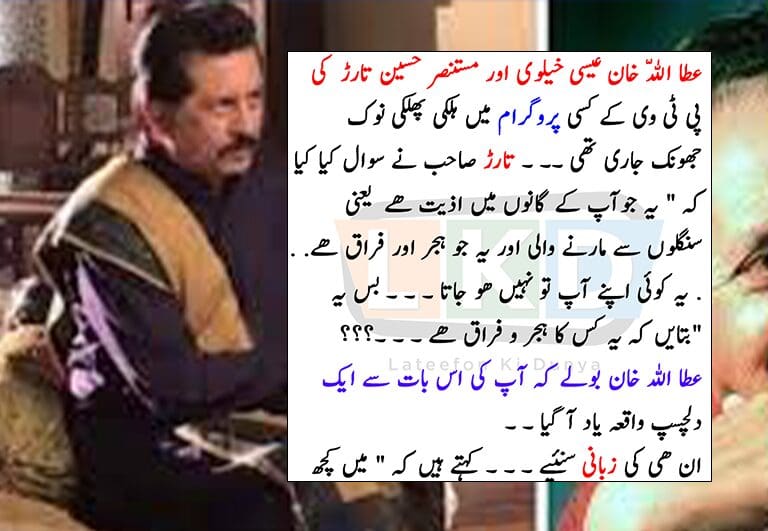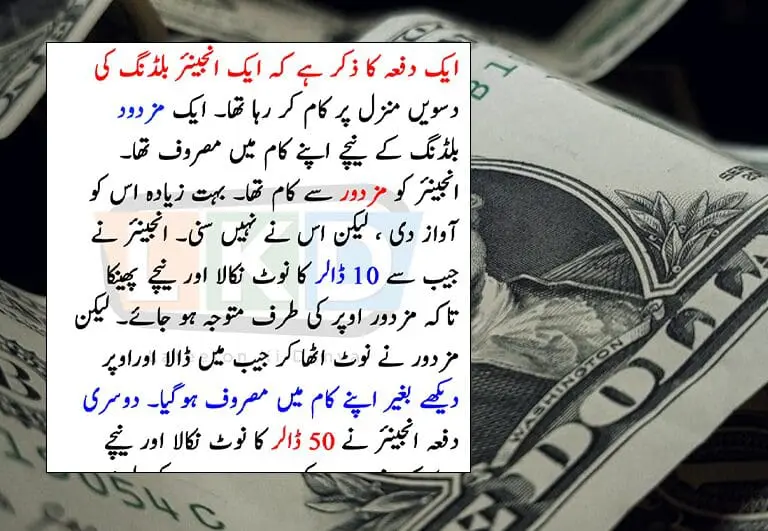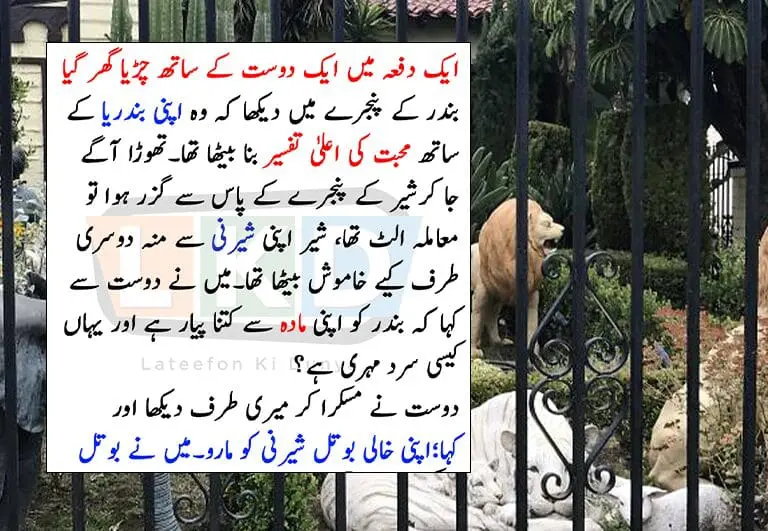Musical Misunderstanding: Ataullah Khan’s Amusing Encounter with Fan
In a light-hearted incident on a Pakistani TV program, Ataullah Khan Esa Khelvi and Mastan Hussain Tarar found themselves in a comical exchange that revolved around one of Ataullah Khan’s songs. Tarar, in his usual humorous style, posed a question, expressing confusion about the meaning of Ataullah Khan’s lyrics. He asked, “Your songs talk about pain, loneliness, and separation. It’s not something that just happens on its own. Tell us, whose separation and loneliness are you singing about?”
READ IN URDU BELOW
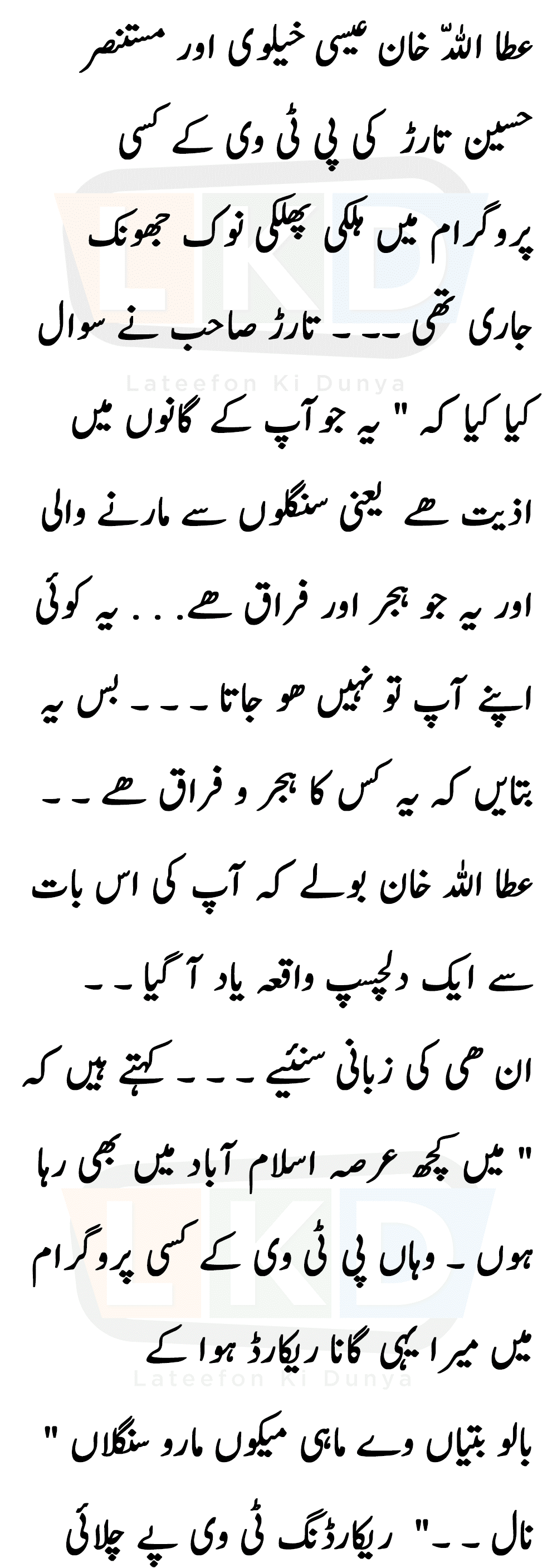
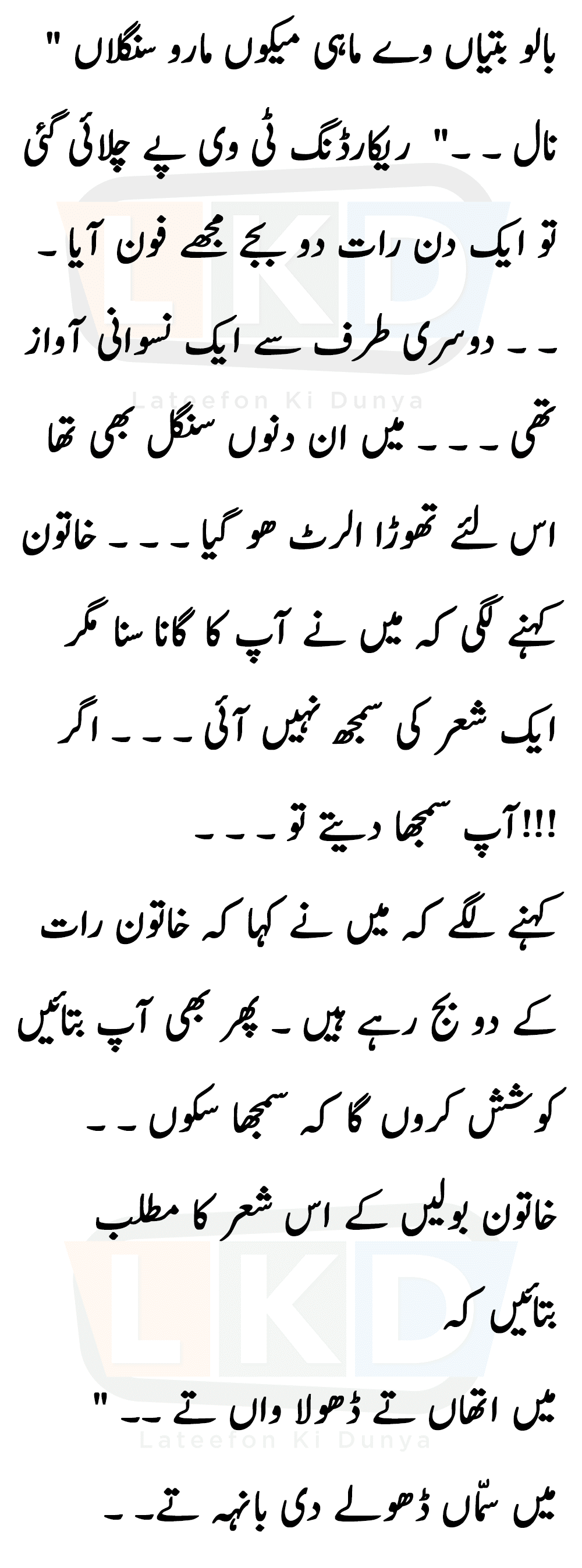

In response, Ataullah Khan shared an amusing anecdote that shed light on the inspiration behind one of his famous songs. He reminisced about a time when he was residing in Islamabad, and one of his songs was being recorded for a TV program. The specific song in question was, “Baloo Batian Way Mahi Mako Sunglanan Naal.” The recording was broadcasted on TV, and it caught the attention of a female listener.
One night, at around 2 AM, Ataullah Khan received a phone call from a woman who was intrigued by the lyrics of his song. She confessed that despite hearing the song, she couldn’t comprehend the meaning of a particular verse. She requested Ataullah Khan to explain the lyrics to her. In a humorous exchange, Ataullah Khan replied that it was quite late at night, but he would try his best to help her understand.
The woman then recited the lines in question, “Main Athan Te Dholan Te, Main Samaan Dhole Di Banna Te.” Confused, she asked Ataullah Khan to decipher the meaning for her. Ataullah Khan chuckled and explained that the first line, “Athan Te Dholan Te,” was somewhat meaningless and primarily used to fill the rhyme scheme. However, the second line, “Main Samaan Dhole Di Banna Te,” had a more profound and vivid meaning.
He elaborated that the phrase “Dhole Di Banna” referred to a vibrant and lively rhythm played on the dhol, a traditional drum. The use of the word “Waan” indicated a small village in their region. Therefore, the essence of the verse was expressing his desire to be somewhere vibrant and lively, placing his beloved on the shoulder while being in that energetic setting. The lyrics conveyed a yearning for a connection with a loved one in a joyful and lively environment.
The woman listened attentively, and when Ataullah Khan concluded his explanation, she expressed her gratitude and said, “I’ve seen the shape now.” Abruptly, she hung up the phone, leaving Ataullah Khan amused and wondering about the unusual phrase.
This anecdote humorously illustrates the occasional challenges in understanding poetic lyrics, especially when they involve regional idioms and expressions. Ataullah Khan’s ability to share this incident with a touch of humor showcased his down-to-earth nature and added a delightful twist to the TV program. The story not only entertained the audience but also provided insight into the intricacies of language and interpretation in the world of music.
